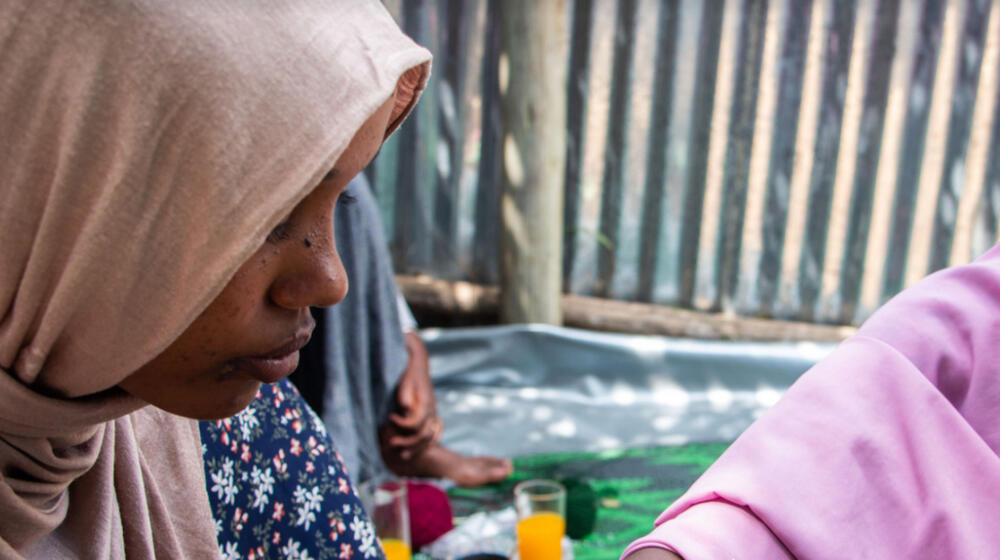-
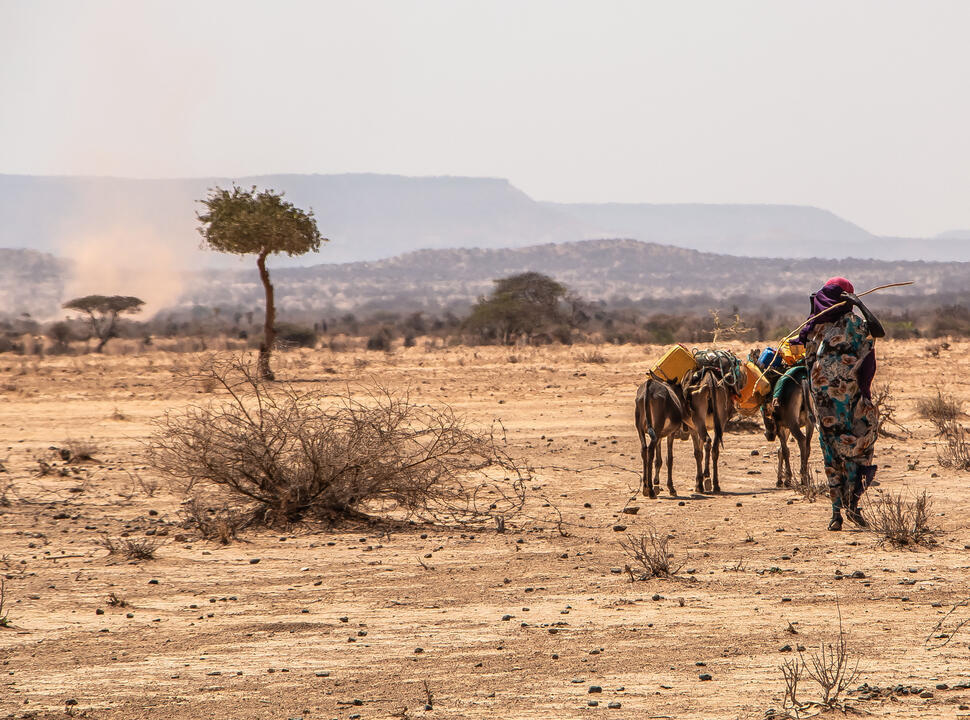
The extent of the Horn of Africa crisis is difficult to conceive. The region is experiencing its worst drought in more than 40 years.
The number of people affected is startling, the needs are immense, and the response is woefully inadequate. Failed crops and water shortages, compounded by conflict in the region and beyond, have led to food scarcity and rocketing prices. Millions of people from Somalia, Ethiopia and Kenya are struggling to survive, with many people leaving their homes each day, forced to seek safety and resources.
Recent heavy rain and flash flooding have caused further displacement and destruction. While the rains are important for human and livestock survival, recovery from six consecutive seasons of poor rainfall will take time.
[Pictured above] A woman guides donkeys carrying jerry cans on the outskirts of the Gabi'as informal settlement in Ethiopia. © UNFPA/Paula Seijo
-
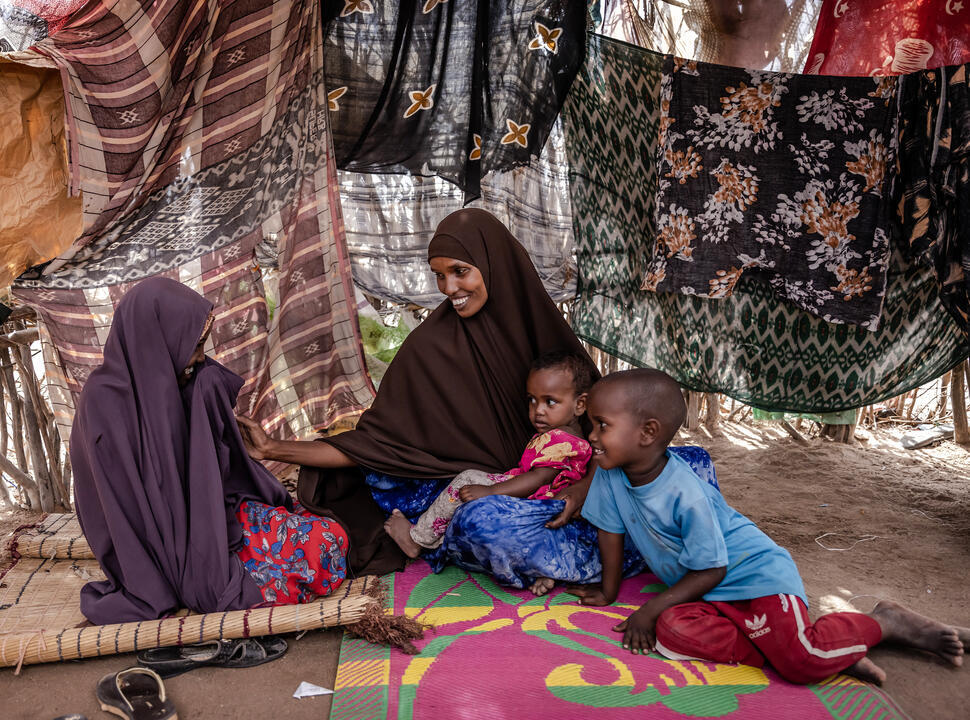
“It breaks my heart to see my kids hungry and thirsty,” says Fatuma, 30, a mother of four.
“Drought has come with a lot of problems for us. Water is scarce, and we can only have one meal per day.”
[Pictured above] Fatuma and her children, in the hut where they live in the village of Garsen in Garissa County, Kenya, do not have enough to eat or drink. © UNFPA/Luis Tato
-
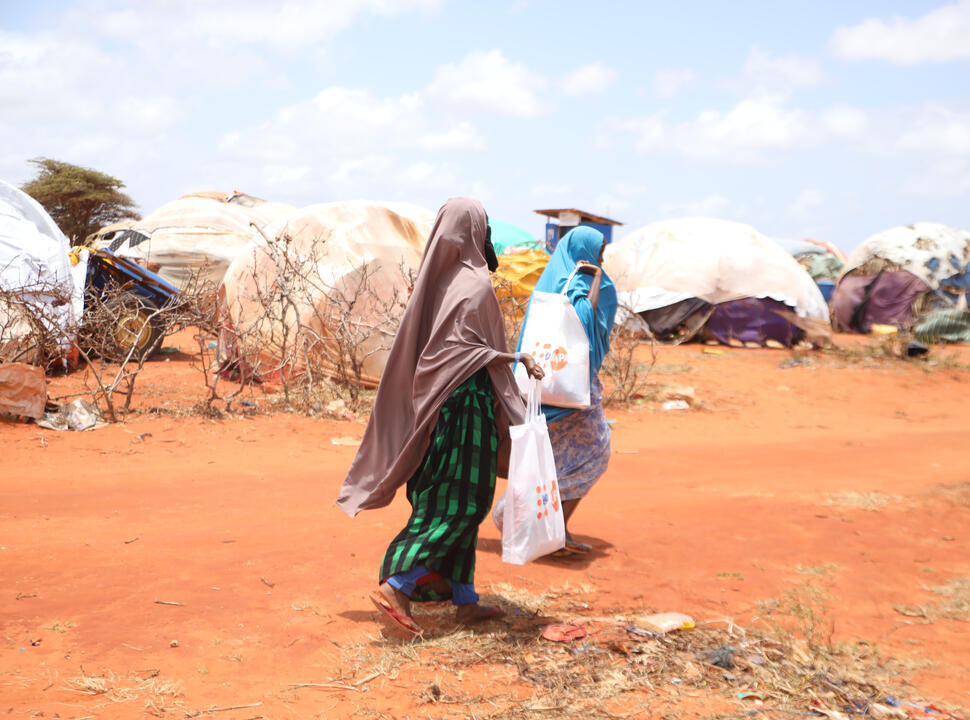
For the women and girls who are living amid this climate crisis, there are increased risks.
Cases of child and forced marriage, female genital mutilation, rape and other forms of violence have all risen sharply. There is a large unmet need for contraception, and across the region, hundreds of thousands of pregnant women have been left struggling to access maternal health services.
[Pictured above] Women with UNFPA dignity kits containing hygiene supplies at a camp for internally displaced people in Kismayo, Somalia. © UNFPA Somalia
-
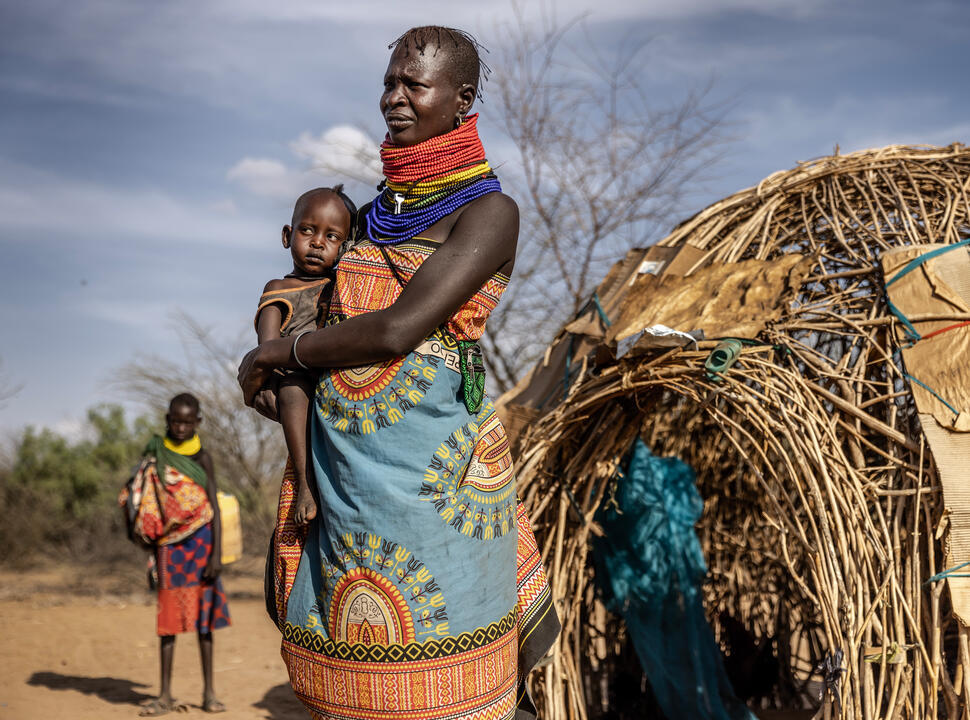
Catherine, 30, is pregnant with her fourth child. She is concerned about what will happen when she goes into labour.
With her nearest health centre a 10-kilometre walk away, and water in short supply, she is not always able to trek to the clinic for antenatal check-ups.
“Usually, when it is time to deliver, my husband will take me to the centre on a motorbike,” she says. “But with him often gone in search of pasture, I have to be ready to fend for myself if need be.”
[Pictured above] Catherine outside her home in the village of Lochorepetet in Turkana, Kenya. © UNFPA/Luis Tato
-
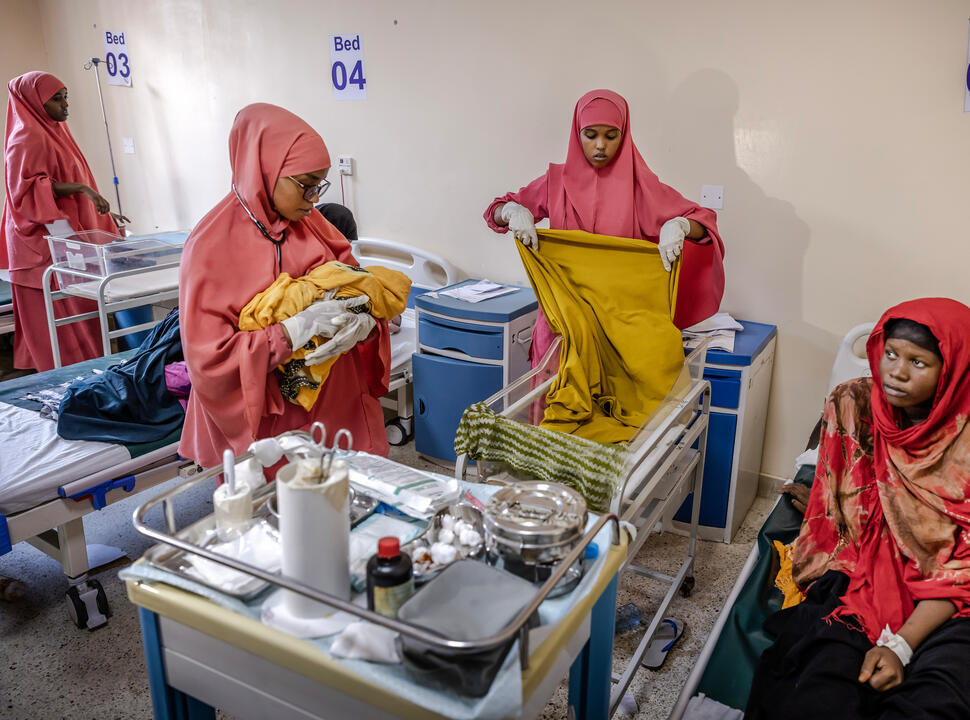
UNFPA-trained midwives are giving more women the chance to have a safe birth. The maternal mortality rate in Somalia is among the highest globally. Access to professional obstetric services can be the difference between life and death for mothers and newborns.
To get to Banadir Hospital in Mogadishu, Isnina travelled from a drought-affected area in Somalia’s Kahda district. Midwife Muno, who assisted with the birth, is also from an area that has been impacted, in the Lower Shabelle.
[Pictured above] Isnina (right) received support from midwives including Muno, who holds her newborn baby at Banadir Hospital in Mogadishu. © UNFPA/Luis Tato
-
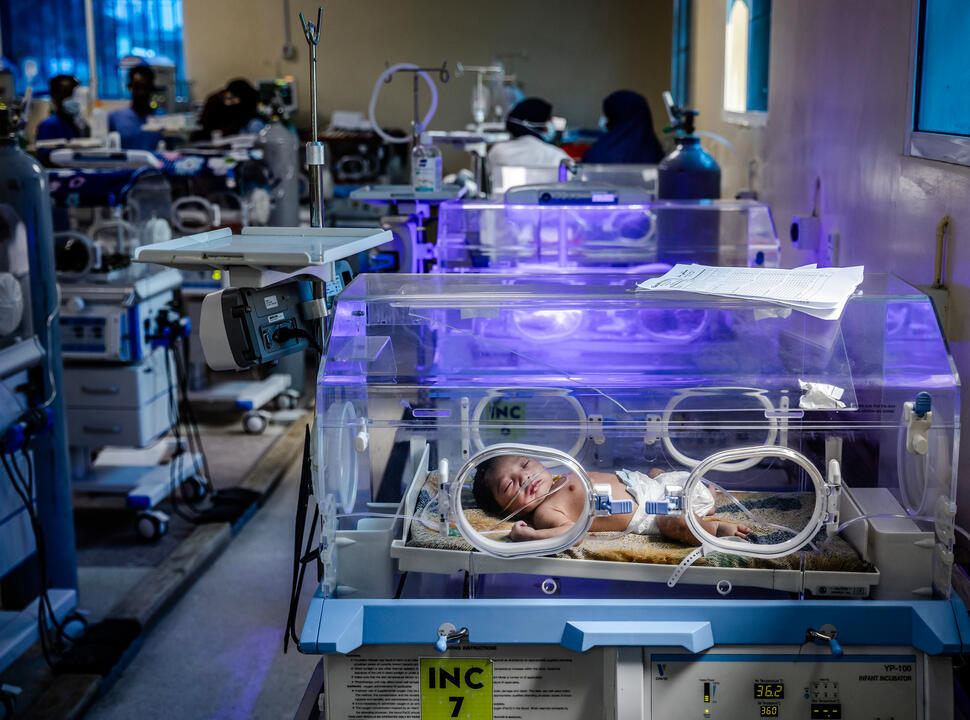
The intensive care unit for newborns at Banadir Hospital is fully funded and supported by UNFPA.
It’s vital that when women and babies need emergency medical care, they can reach it. One pregnant woman or newborn dies every seven seconds globally. Women living in crisis are among those at a higher risk. UNFPA is striving to end preventable deaths.
[Pictured above] A baby receives vital care at Banadir Hospital in Mogadishu. © UNFPA/Luis Tato
-
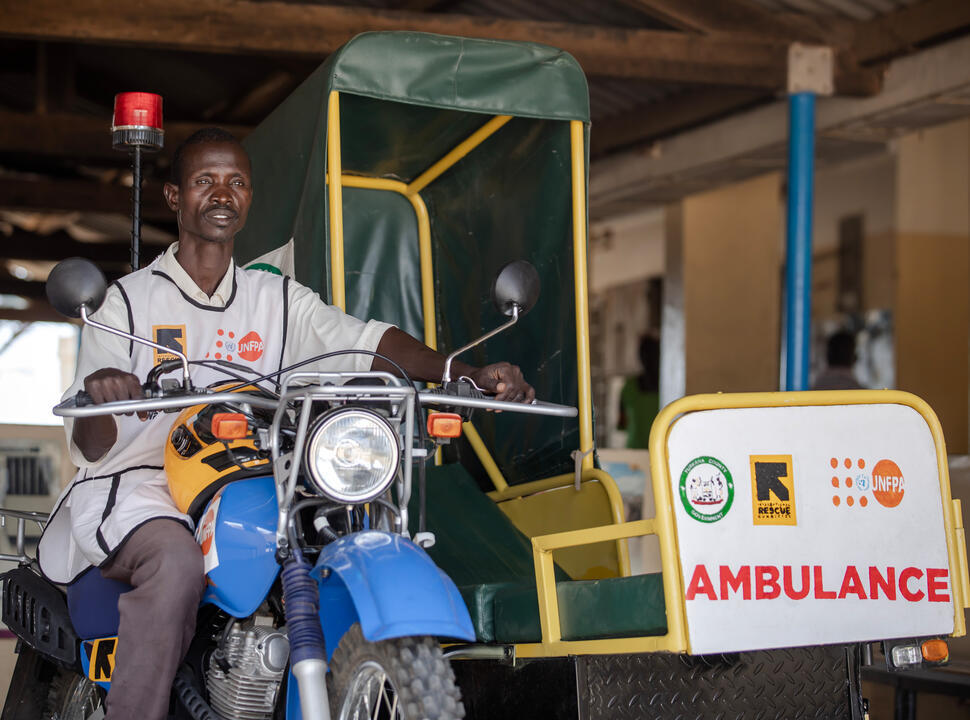
For women like Catherine who may be unable to get to a maternity facility, UNFPA supports a range of mobile services and initiatives to reach people, such as this motorcycle ambulance, driven by Mark, who transports women to deliver safely.
A community health volunteer, Mark says, “The hardship brought on by the drought has left many women weak and malnourished. I cannot imagine them giving birth without the support of a skilled health professional. In the past, women have given birth on the roadside while trekking to hospital because they live too far from a health facility. With the motorcycle ambulance, even if a woman delivers on the way, she is able to do so in a dignified manner, on a comfortable stretcher and with the help of a healthcare worker and myself.”
[Pictured above] A motorcycle ambulance provided by UNFPA supports the work of Katilu Sub-County Hospital in Turkana County, Kenya. © UNFPA/Luis Tato
-
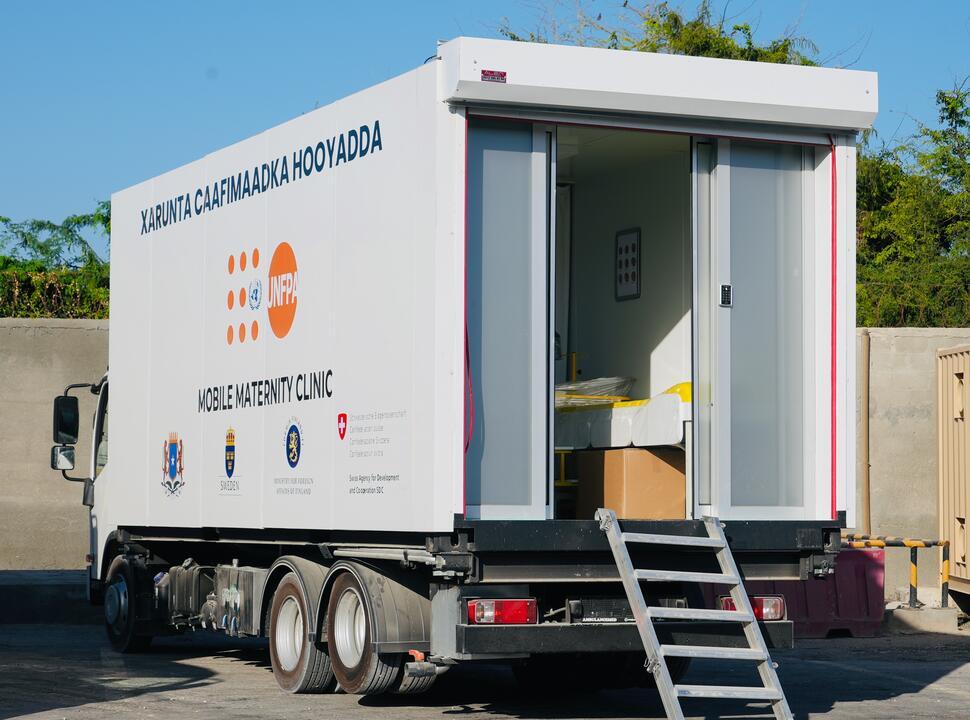
Launched in March 2023, five mobile maternity clinics in Somalia will provide safe deliveries and other essential services.
The truck-mounted emergency obstetric and newborn care units are expected to reach between 250,000 and 375,000 people in five districts. Additionally, the units provide contraception and family planning services to reduce the unmet need, as well as specialist medical care for women who have been raped.
Niyi Ojuolape, UNFPA’s country representative, describes the clinics as a “game-changer,” noting that they “improve access to the hardest to reach and the marginalized populations, promoting equity in the humanitarian response.”
[Pictured above] Five mobile maternity clinics were procured by UNFPA via the Somalia Multi Partner Trust Fund. © UNFPA Somalia/Mohamud Abdisamad
-

Kashindi and Queen live and work in the Kalobeyei settlement for refugees in Turkana, Kenya. Like Mark, they are volunteers and “safe motherhood promoters.”
With UNFPA support, they carry out house visits and support displaced people with essential pre- and postnatal services.
[Pictured above] Health volunteers Kashindi (left) and Queen at the maternity wing of the Natukobenyo Health Centre. © UNFPA/Luis Tato
-
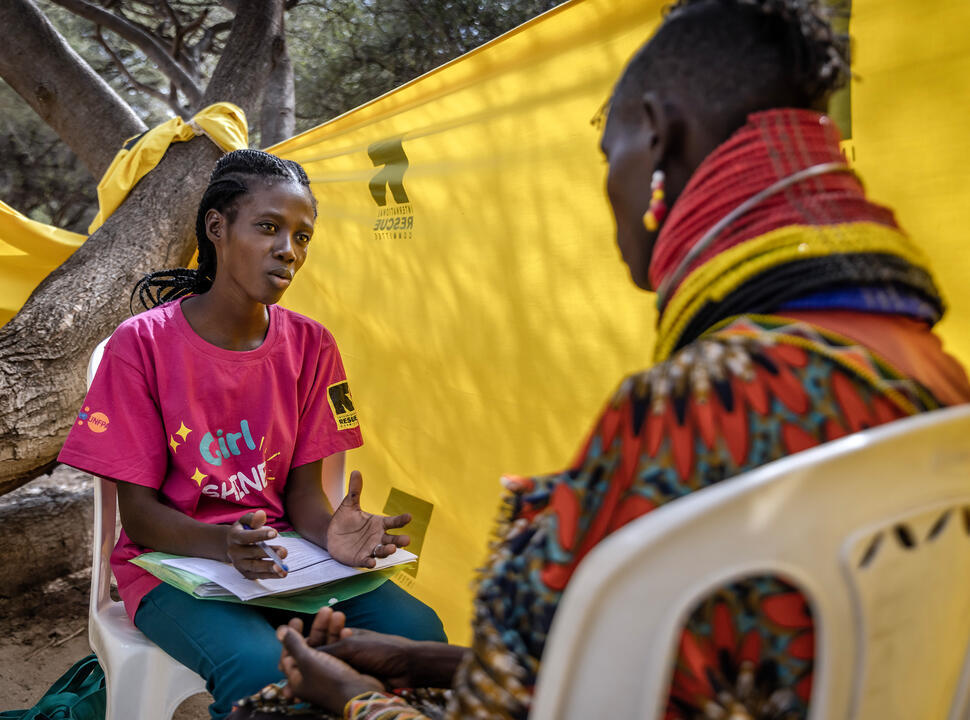
With women and girls facing increased threats to their personal safety, protection services are a key element of UNFPA’s response.
The reported figures are alarming. For example:
- In the Somali region of Ethiopia, child marriage increased by 131 per cent in the first half of 2022 compared with the same period the previous year.
- Drought-affected areas of Somalia saw a 60 per cent increase in gender-based violence last year.
- Around two-thirds of women and girls in four northern counties of Kenya said their biggest safety concerns were domestic violence and forced marriage.
Services and support are overstretched or non-existent. We need to do more.
[Pictured above] A counselor discusses gender-based violence with a woman in a remote, drought-affected area near Katilu,Turkana South, Kenya. © UNFPA/Luis Tato
-
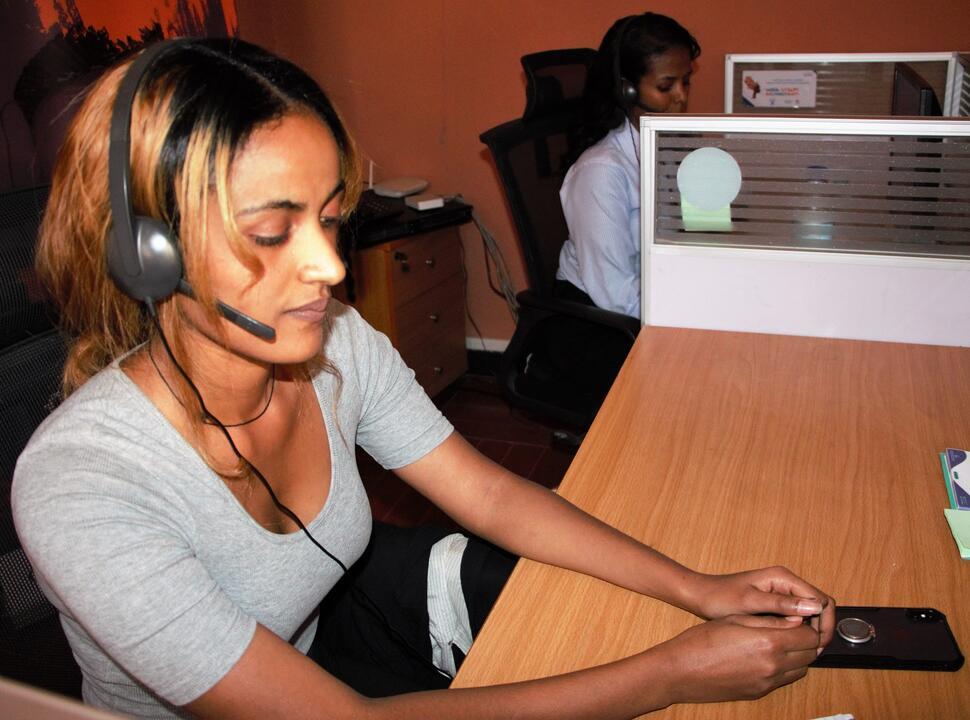
Across Ethiopia, including drought-affected areas, women and girls can call 7711 to speak to a legal expert and receive advice and quick access to legal-aid services.
The UNFPA-supported hotline was established in 2019 and is free to call. Run by the Ethiopian Woman Lawyers Association, it receives up to 15 calls daily in three languages: Amharic, Oromiffa and Tigrigna.
“Most calls are from women who seek advice about violence in marriage, divorce and child support. Gender-based violence cases are also common,” says Feven Gaddisa, a lawyer at the call centre. “Sometimes we receive calls from women in imminent physical danger, which is the hard part of our job. We quickly connect them with EWLA focal persons in their area. It helps that we have offices and focal points in most [districts]. There is usually someone to support them quickly.”
If callers are in danger, she and her colleagues refer women and girls to safe houses for shelter and psychosocial support.
[Pictured above] Lawyer Feven Gaddisa supports women via hotline, giving advice on legal aid. © UNFPA Ethiopia
-
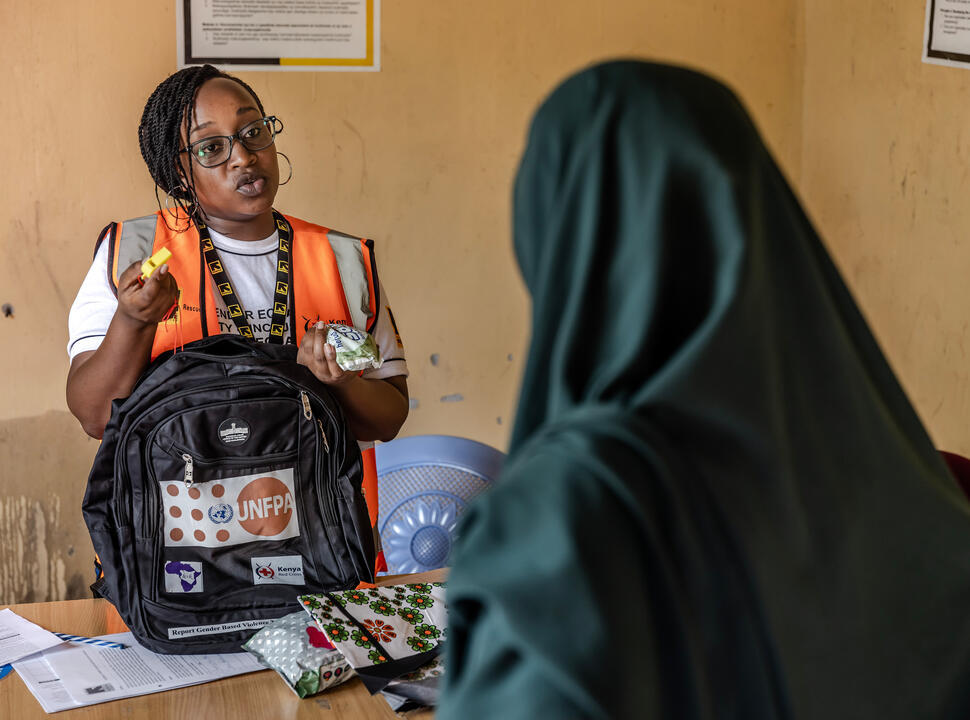
A refugee from Somalia has recently arrived in Hagadera camp in Garissa, Kenya.
UNFPA estimates that around 28,000 women of reproductive age are at risk of sexual violence in drought-affected areas of Kenya alone, if interventions are not put in place to mitigate.
“In Hagadera camp, we have had a nearly 20 per cent increase in the population since May 2022, which causes a huge strain on available resources,” says Jane Ambale, a senior women protection and empowerment officer with the International Rescue Committee. UNFPA is supporting the IRC to conduct screening for gender-based violence among new arrivals. “Our goal is to identify women and girls who are survivors or at risk of gender-based violence, and to provide them the critical information and services they need,” she says.
[Pictured above] Jane Ambale provides support to a woman who has recently arrived in Hagadera, including a UNFPA dignity kit, containing a whistle and essential hygiene items. © UNFPA/Luis Tato
-
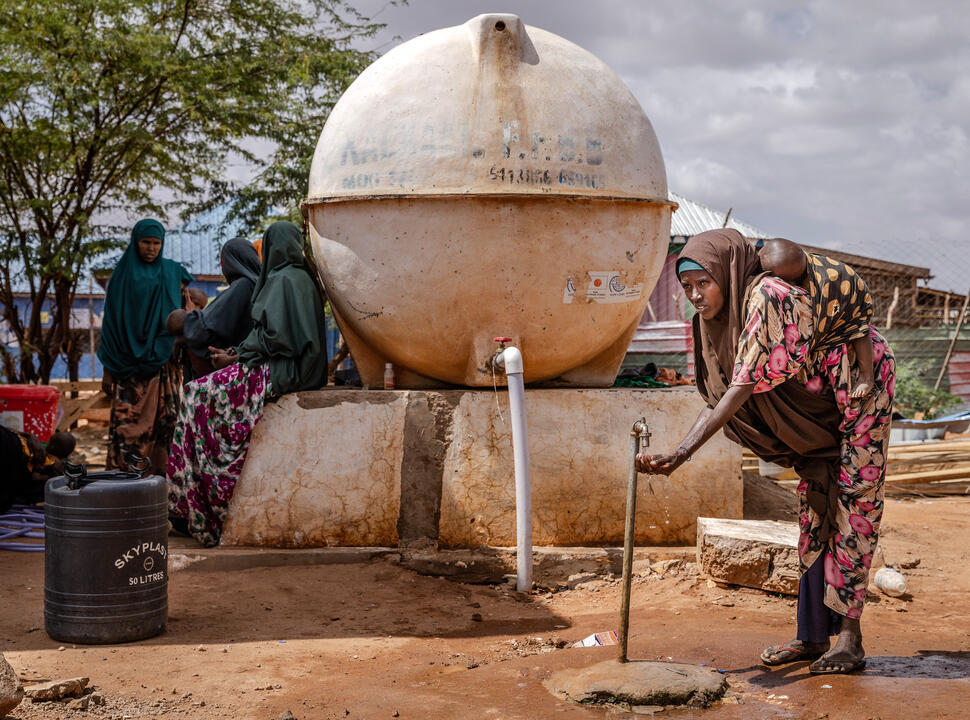
With risks to women and girls spiralling, life-saving services need to be ramped up. However, the demand significantly outweighs the investment into the crisis response.
With increased support from the international community, UNFPA can do more for women – who are already struggling to survive – in order to protect them from violence and provide access to safe births.
[Pictured above] A tap outside the Kabassa Health Centre in Doolow, Somalia. Water scarcity is just one of the overlapping crises facing women and girls living amid the climate crisis in the Horn of Africa. © UNFPA/Luis Tato
- Home
- Slideshows
- Motorcycles, mobile hospitals and new mamas: Meeting the overwhelming needs of women and girls in the Horn of Africa
Motorcycles, mobile hospitals and new mamas: Meeting the overwhelming needs of women and girls in the Horn of Africa
22 May 2023
